Iranian crypto traders are running a high-stakes game of hide-and-seek with global exchanges, and the rules are changing fast. For years, using a VPN to bypass internet restrictions and access platforms like Binance or Kraken was the norm - simple, cheap, and mostly safe. But since early 2024, that safety net has vanished. Today, even the most careful trader can lose everything in seconds - not because they broke a law, but because their VPN dropped during a trade, their device fingerprint matched a known pattern, or their transaction history looked too Iranian to ignore.
Why Iranians Need VPNs to Trade Crypto
Iran’s financial system is cut off from much of the world. Sanctions block access to SWIFT, freeze bank accounts linked to crypto, and make it nearly impossible to deposit or withdraw fiat money through normal channels. That’s why Iranians turned to cryptocurrency - not as a speculative asset, but as a lifeline. It’s how they pay for medicine, send money to family abroad, or buy tools for their small businesses. But international exchanges don’t want to risk breaking sanctions. So they block Iranian IPs. Enter the VPN. For years, a $5 monthly subscription was enough to mask your location. You’d connect to a server in Germany or the U.S., sign up for Binance with just an email, and start trading. No ID. No hassle. That changed in 2021 when Binance started requiring KYC. But even then, many Iranians slipped through - until October 2024.The Nobitex Breach That Changed Everything
Nobitex, Iran’s biggest crypto exchange, handles over 87% of all crypto transactions in the country. In October 2024, a security breach exposed user data - wallet addresses, transaction logs, and IP records - and it didn’t stay hidden. Two blockchain intelligence firms got hold of it. They didn’t just analyze the data. They launched a bounty program: pay $500 for every verified Iranian wallet linked to international exchanges. Suddenly, exchanges had a map. They could see which wallets were sending money from Nobitex to Binance, which ones were withdrawing to TRON-based addresses, and which IPs were tied to both. TRON became the favorite network for Iranian traders - it’s fast, cheap, and easy to mix. But that also made it easier to track. Over $2 billion of the $3 billion processed by Nobitex in 2025 flowed through TRON. That’s a goldmine for detection tools.How Exchanges Detect You - Even With a VPN
It’s not just your IP anymore. Exchanges now use device fingerprinting - a digital ID built from your browser type, screen resolution, installed fonts, and even how fast you type. If your device matches the profile of someone who previously traded from Iran, you’re flagged. Even if you’re on a U.S. VPN. Then there’s timing. Iranian traders often operate during local business hours - 7 a.m. to 11 p.m. Tehran time. That pattern shows up in transaction logs. Withdrawals to specific crypto addresses used by Iranian money changers? Red flag. Repeated logins from the same device after switching VPN servers? Even worse. And here’s the kicker: free VPNs are the worst choice. Many are run by local operators who sell your data to Iranian authorities or third-party trackers. Some even log your traffic. Others are so overloaded that they crash mid-trade - exposing your real IP. One trader in Mashhad lost $18,000 in BTC when his free VPN dropped during a withdrawal. His account was frozen within 12 minutes.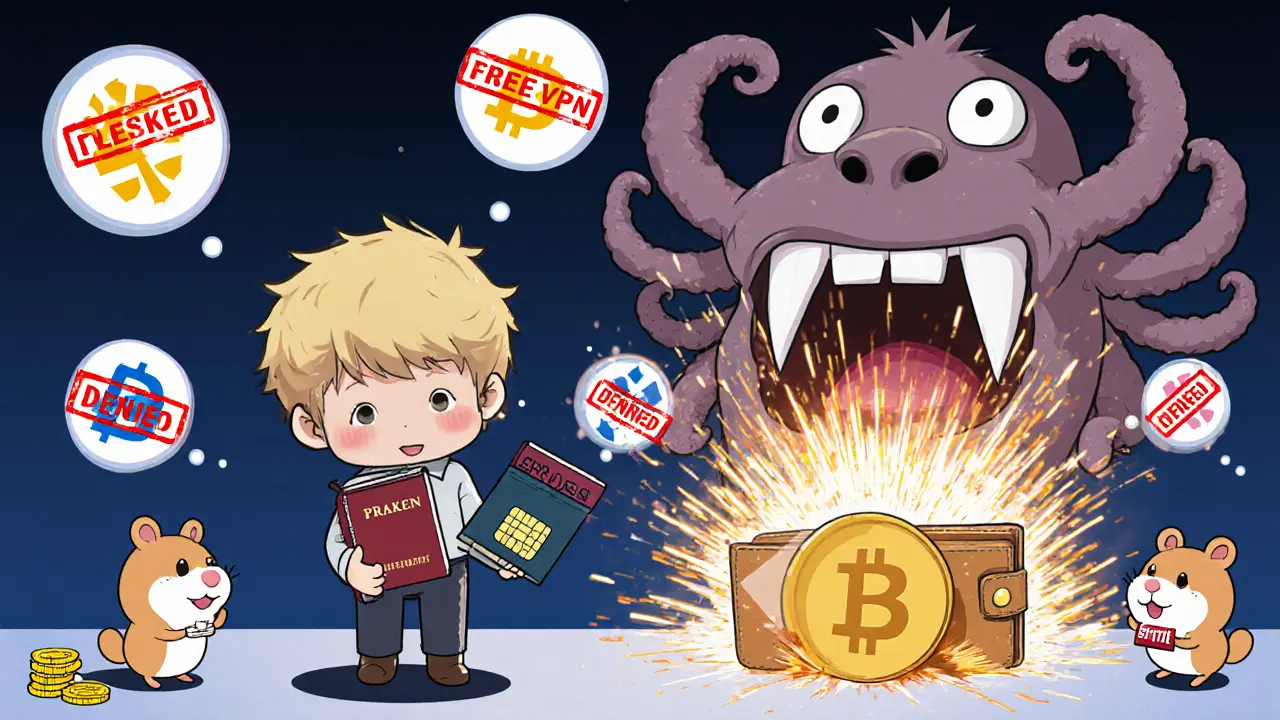
The Underground Identity Market
When the crackdown hit, Iranians didn’t give up. They built a shadow economy around it. Now, there are vendors selling full identity packages: fake Canadian passports, German SIM cards for SMS verification, and even international bank account numbers (IBANs) that look real. These aren’t forged by hackers - they’re real documents obtained through offshore networks, often bought for $300-$800 each. One trader in Shiraz told Reuters he spent $650 on a package that included a Polish ID, a Belgian phone number, and a dummy bank account. He used it to open a Kraken account. For six months, he traded without issue. Then, Kraken flagged a withdrawal to a wallet linked to a Nobitex address. His account was suspended. He still hasn’t gotten it back. These services are growing. Demand surged 220% between January and July 2025. But they’re not foolproof. Exchanges now cross-check document authenticity with third-party verification tools. A fake German ID might pass a basic scan - but fail when matched against government databases or linked to a phone number registered in Tehran.What Happens When You Get Caught
Getting caught isn’t just about losing access to your account. It’s about losing the money inside it. Once an exchange freezes your account, you’re at their mercy. Appeals rarely work. And if you’re using a VPN to hide your location, you’re automatically assumed to be trying to evade sanctions - no proof needed. In January 2025, Iran’s Central Bank froze over one million bank accounts tied to crypto activity. Many of those accounts were linked to traders who’d used Nobitex to cash out. Even if you didn’t break Iranian law, you’re still punished. The government doesn’t care if you’re trading for survival. If you used crypto, you’re a target. The psychological toll is heavy. Traders now avoid large transactions. They split holdings across wallets. Some use Hamster Combat - a mobile game that pays in crypto - to earn small amounts without triggering exchange monitors. It’s not a solution. It’s a workaround for a system that’s shutting down.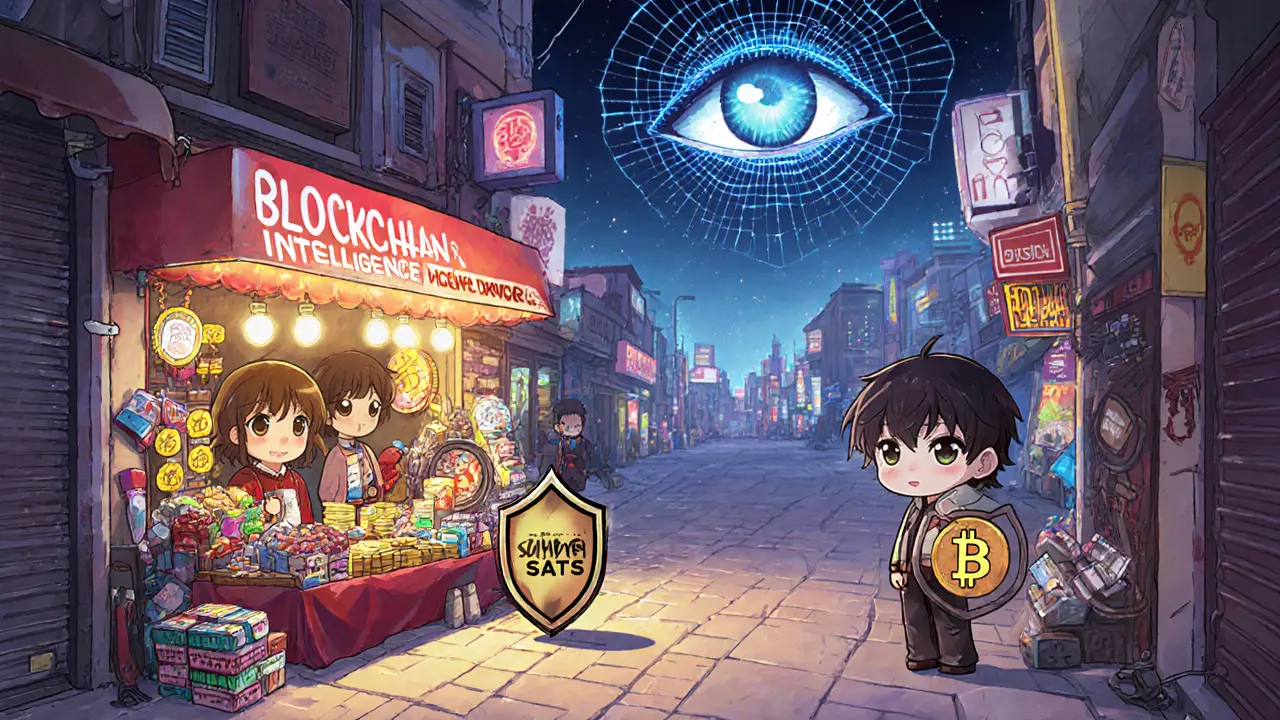
Why VPNs Are No Longer Enough
The truth is, VPNs worked because exchanges didn’t look too hard. Now, they’re looking everywhere. The combination of blockchain analytics, behavioral tracking, device fingerprinting, and leaked data from domestic exchanges like Nobitex has created a perfect storm. In June 2025, crypto inflows to Iran dropped more than 50% year-over-year. By July, the drop hit 76%. That’s not because people stopped caring. It’s because the tools they relied on stopped working. The underground identity market is growing - but so are the detection systems chasing it. Even if you have the best paid VPN, the clearest fake ID, and the cleanest transaction history - you’re still at risk. One misstep: a delayed login, a mismatched browser, a withdrawal to a known address - and it’s over.What Comes Next?
Iranian traders are adapting. Some are moving to decentralized platforms that don’t require KYC. Others are using peer-to-peer (P2P) networks like LocalBitcoins or Paxful - but even those are being monitored. A few are experimenting with privacy coins like Monero, but liquidity is low and conversion is hard. The bigger question is whether this is sustainable. Every new detection tool makes the game harder. Every crackdown makes the cost higher. And every time a trader gets locked out, it sends a warning to everyone else. The future won’t be about better VPNs. It’ll be about smaller, smarter, more fragmented movements - tiny transactions, hidden wallets, and offline methods. But for now, the risk remains sky-high. And the price of getting caught? Not just your money. Your freedom to trade at all.Can I use a free VPN to trade crypto in Iran?
No. Free VPNs are extremely risky. Many are operated by local actors who log your activity, sell your data to Iranian authorities, or simply crash mid-trade - exposing your real IP. They also lack strong encryption and often have slow speeds that cause failed transactions. In 2025, using a free VPN for crypto trading in Iran is one of the fastest ways to get your account frozen.
Why did Nobitex become such a big target for detection?
Nobitex processes over 87% of all Iranian crypto transactions. When its systems were breached in October 2024, it exposed a massive dataset of wallet addresses, transaction histories, and IP logs. Blockchain intelligence firms used this data to build detection profiles specifically for Iranian users, making it easy to trace funds moving from Nobitex to international exchanges like Binance or Kraken.
Do Iranian authorities punish people for using crypto with a VPN?
Iran’s Central Bank bans crypto payments, but doesn’t directly jail individuals for using VPNs to trade. However, if you’re caught using crypto to move money abroad, your bank accounts can be frozen, and your device seized. In some cases, individuals have been summoned for questioning by Iran Cyber Police (FATA), especially if large sums are involved. The punishment is financial and bureaucratic - not always criminal - but still devastating.
Is TRON used more by Iranian traders than Bitcoin?
Yes. TRON is the dominant network for Iranian crypto activity. Over $2 billion of the $3 billion processed by Nobitex in 2025 moved through TRON. It’s faster, cheaper, and easier to use for small, frequent transactions. But because it’s so centralized in its usage, blockchain analytics firms can spot Iranian patterns more easily than on Bitcoin, which has more global noise.
Can I get my money back if an exchange freezes my account?
Almost never. Once an exchange flags your account for suspected sanctions evasion - especially if you used a VPN - they are not obligated to release your funds. Appeals are rarely successful. Most traders who lose access to their accounts on Binance, Kraken, or Coinbase never recover their holdings. This is why many now use small,分散 (dispersed) wallets and avoid large transfers.
Are there any legal ways for Iranians to trade crypto internationally?
No. Iranian law prohibits citizens from accessing foreign crypto exchanges without government approval - which is never granted. Even with a VPN or fake documents, you’re violating both international sanctions and Iranian regulations. There is no legal pathway. All current methods are high-risk workarounds with no protection.
What’s Hamster Combat, and why are Iranians using it?
Hamster Combat is a mobile game where players earn small amounts of crypto by tapping a screen. It doesn’t require KYC, doesn’t connect to traditional exchanges, and avoids detection systems. Many Iranians use it to earn small, untraceable amounts of crypto - not as a serious investment, but as a way to avoid the risks of trading on Binance or Kraken. It’s a workaround for a system that’s closing every door.
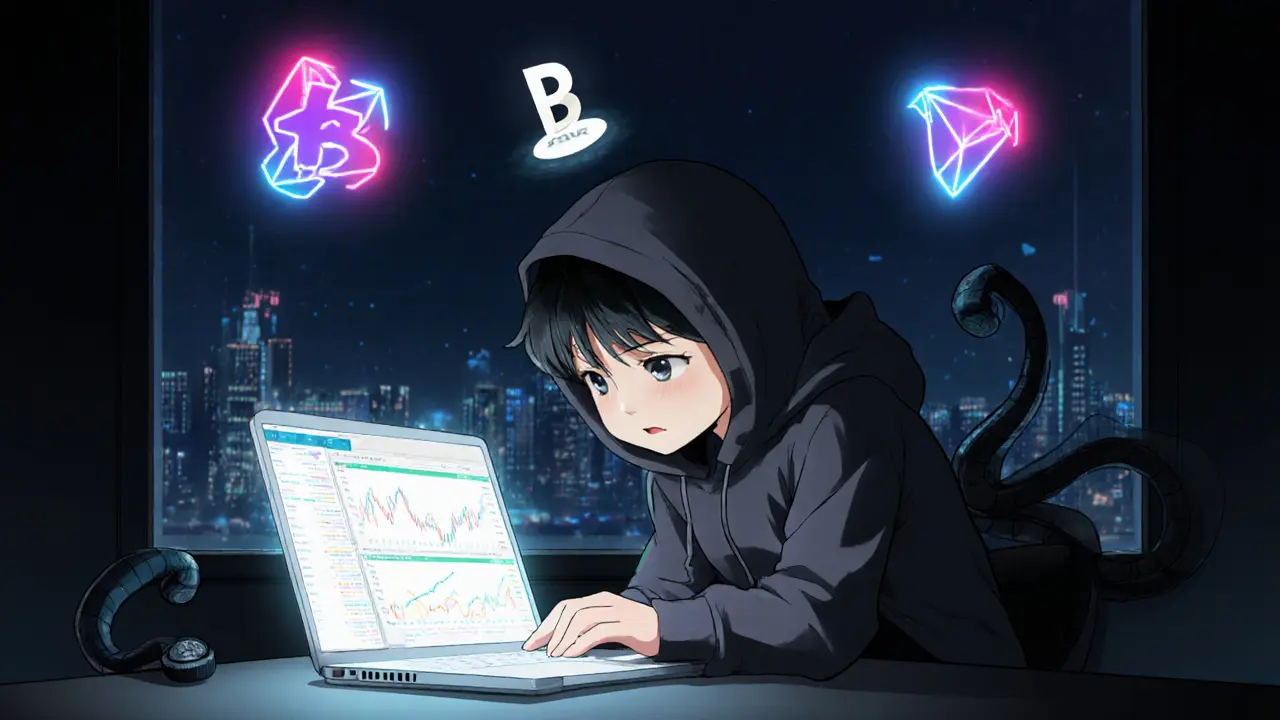
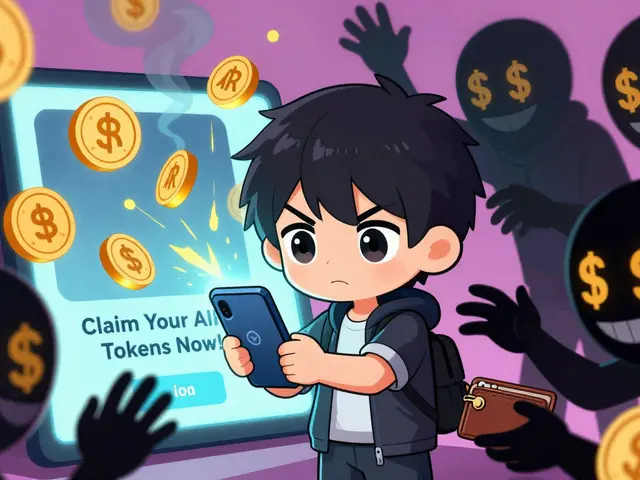
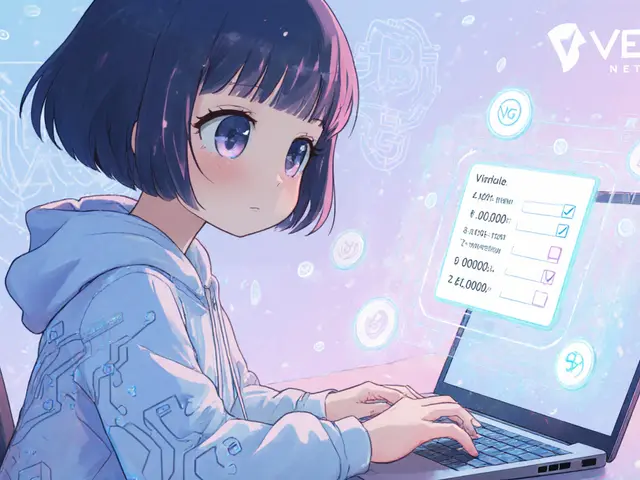
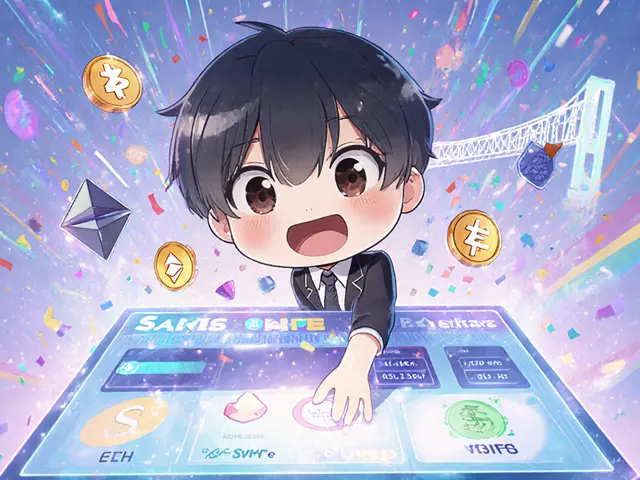
Mike Calwell
November 17, 2025 AT 05:45free vpns are a joke lol
Sean Pollock
November 18, 2025 AT 19:25lol u think this is new? 😏 i've been watching this play out since 2022. Iranians are the most creative hackers on earth - but they’re playing chess while the exchanges are playing 4D tic-tac-toe with AI. Every time they build a new workaround, some nerd in San Francisco trains a model to spot their typing rhythm. It’s not about tech anymore - it’s about behavioral biometrics. And yeah, your free VPN? Probably run by some dude in Tabriz who sells your logs to the mullahs for a few bucks and a kebab. 🤡
Carol Wyss
November 19, 2025 AT 16:45This is so heartbreaking. People just trying to buy medicine or send money to their kids abroad, and now they’re being hunted like criminals. 😔 I wish more people understood this isn’t about ‘evading sanctions’ - it’s about survival. The fact that exchanges freeze accounts without appeal is just… cruel. Please, if you’re reading this - don’t judge. Just listen.
Grace Craig
November 20, 2025 AT 15:54One must question the epistemological foundations of crypto anonymity in the context of state surveillance capitalism. The very notion of ‘privacy’ as a libertarian ideal is rendered ontologically incoherent when subjected to blockchain forensics, behavioral profiling, and institutionalized de-anonymization protocols. The Iranian trader, then, is not merely a violator of sanctions - he is a tragic symbol of the collapse of digital individualism in the age of algorithmic hegemony. 🤔
Ninad Mulay
November 21, 2025 AT 04:03Man, I’ve seen this in India too - people using VPNs to trade crypto because banks won’t touch them. But here, it’s just… chaotic. No one has a plan. One guy I know used a fake Canadian passport, bought a SIM from a guy on Telegram, and opened a Kraken account. Lasted 3 months. Got flagged because his withdrawal went to a wallet that had a 0.0001 BTC echo from a Nobitex address. He cried for a week. And now he’s using Hamster Combat to earn 5 cents a day. That’s not innovation - that’s desperation dressed up as a game. 🐹💸
Jay Davies
November 22, 2025 AT 10:22Actually, the TRON dominance is misleading. While $2B out of $3B went through TRON, that’s because it’s cheap and fast - not because it’s anonymous. TRON’s consensus mechanism is centralized, and its public ledger is trivial to analyze. Bitcoin, despite its noise, is actually harder to trace at scale because of UTXO fragmentation and mixing services. The real issue isn’t the chain - it’s the metadata. IP + device fingerprint + transaction timing = death sentence. Also, free VPNs are worse than useless - they’re actively malicious. Case closed.
Ryan Hansen
November 23, 2025 AT 08:51It’s wild how much this mirrors the early 2000s internet censorship in China - except now the tools are way more advanced. Back then, you could use a proxy and hope. Now, they’re not just tracking your IP - they’re watching how you move your mouse, how long you pause before clicking ‘withdraw’, whether you use Caps Lock inconsistently, even what fonts your browser renders. I read a paper last week from a crypto forensics firm that said they can identify Iranian traders with 94% accuracy just from keystroke dynamics. And the kicker? Most of them don’t even know they’re being tracked. They think they’re safe because they’re on a ‘US server’. Nope. Your phone’s gyroscope gives you away. Your screen brightness settings give you away. Your Wi-Fi handshake gives you away. It’s not paranoia - it’s math.
Derayne Stegall
November 23, 2025 AT 20:42YOOOOO HAMSTER COMBAT IS LIT 🐹🔥
Just started playing it last week - made $0.87 in crypto. Not life-changing, but I didn’t get flagged, didn’t use a VPN, didn’t even log in with my real email. Just tap, tap, tap while I’m on the bus. It’s like crypto therapy 😌
Also, if you’re still using free VPNs… bro, just stop. 😅
Shanell Nelly
November 24, 2025 AT 00:42If you’re Iranian and reading this - you’re not alone. I know it feels like the whole world is against you, but there are communities out there helping. Some people are setting up offline P2P trades via Bluetooth or NFC. Others are using local crypto ATMs that don’t ask for ID. And yes, it’s risky - but it’s working. Don’t give up. Small steps matter. And if you need help finding safe wallets or learning how to mix coins, DM me. I’ve been there.
Aayansh Singh
November 24, 2025 AT 18:54Pathetic. These people are not victims - they’re sanctions violators. If you live under a regime that bans crypto, you don’t get to bypass it with fake passports and Russian-run VPNs. You accept the rules or leave. This isn’t ‘survival’ - it’s criminal negligence wrapped in emotional manipulation. The fact that Reddit thinks this is tragic is why the West is collapsing. Get a real job. Move to Canada. Stop trying to hack the global financial system with a $5 app.
Rebecca Amy
November 24, 2025 AT 21:52so like… tron is the main chain? really? i thought bitcoin was still king 🤔
also why are people using fake german ids? like… how does that even work? lol
Darren Jones
November 25, 2025 AT 08:17It’s not just the VPN… it’s the device. If you’ve ever used the same phone to log into Nobitex and then Binance - even months later - your browser fingerprint is still linked. You can wipe your cache, change your IP, install a new OS… but your screen resolution, your touch latency, your font stack - those are permanent. They’re like a tattoo. And exchanges have a database of Iranian device signatures now. It’s terrifying. I used to think crypto was freedom. Now I think it’s a surveillance trap.
Kathleen Bauer
November 27, 2025 AT 05:25my cousin in tehran just told me she’s using hamster combat to earn dogecoin and then swapping it on a local peer-to-peer group for rials. no vpn, no id, no risk. she says it’s like playing a game and getting paid in digital candy 🍬
and honestly? i think that’s the future. tiny, quiet, invisible. not big trades. just… survival.
Carol Rice
November 28, 2025 AT 21:03STOP USING FREE VPNS!!! I can’t believe people are still doing this in 2025!!! 😤
Every. Single. Time. Someone loses $10k because they used a free VPN that logs everything - and then the Iranian Cyber Police show up at their door with a printout of their transaction history. It’s not ‘risk’ - it’s stupidity. Pay $10/month for a reputable provider. Use Tor. Use Monero. Use a burner device. But don’t be lazy. Your money - your freedom - is worth more than a free app.
Laura Lauwereins
November 29, 2025 AT 23:37So let me get this straight - the global financial system is so fragile that a $5 VPN can ‘break’ it? 🤨
Meanwhile, Iranian traders are using mobile games to earn crypto because they can’t buy insulin… and we’re all here debating blockchain analytics like it’s a TED Talk. I mean… what a world. 🤷♀️
Gaurang Kulkarni
November 30, 2025 AT 19:18Iranians are dumb for using TRON. Everyone knows it’s traceable. Why not use Monero? Why not use Zcash? Why not use local wallets? Because they are lazy and want quick money. The system is not broken - they are broken. No one forced them to trade. They chose this. Now they cry when they lose. Pathetic.
Nidhi Gaur
November 30, 2025 AT 22:43my friend got caught using a fake polish id. they took his laptop and phone. he got fined 50 million toman. he still owes 20 million because he couldn’t pay. now he works at a cyber cafe. he says he’s lucky they didn’t jail him. i’m not using any vpn anymore. just hamster combat. it’s safer. and i get to play with my cat while earning. 😺
Usnish Guha
December 2, 2025 AT 02:59This is why Westerners don’t understand. You can’t outsmart a theocracy with technology. The regime doesn’t care about your VPN or your fake passport. They care about control. Every time someone uses crypto to bypass sanctions, they’re feeding the narrative that Iran is a rogue state. So yes - the crackdown is brutal. But it’s also inevitable. Stop romanticizing this as a freedom fight. It’s a self-destructive act that harms the entire nation.
satish gedam
December 2, 2025 AT 16:33Hey everyone - if you’re in Iran and reading this, you’re stronger than you think. I’ve been helping people set up offline crypto swaps using QR codes and USB drives. No internet needed. Just meet someone in a park, scan the code, hand over cash. It’s slow, but it works. And if you need help finding a safe wallet or learning how to split your holdings into tiny amounts - I’ve got a free guide. DM me. You’re not alone. We’ve got your back. 💪❤️
rahul saha
December 3, 2025 AT 01:54Isn’t it ironic? We live in an age where AI can predict your next thought… but we still think a $5 VPN can hide us from it? The real tragedy isn’t the frozen accounts - it’s that we’ve been conditioned to believe that technology can solve political oppression. It can’t. It just delays the inevitable. The system wins. Always. We’re just rearranging deck chairs on the Titanic… while wearing fake German IDs. 🤖⚓
Marcia Birgen
December 4, 2025 AT 06:36There’s so much hope in the small things. People using Hamster Combat. Trading via Bluetooth. Splitting crypto into 0.001 BTC chunks. That’s not failure - that’s genius. We’ve been taught that crypto is about big gains. But for these traders? It’s about tiny wins. One dollar saved. One pill bought. One message sent to a loved one. That’s the real revolution. And it’s quiet. And beautiful. 🌱
Jerrad Kyle
December 5, 2025 AT 13:20Man, I’ve been in India where banks shut down crypto accounts too. Same story. Same pain. But here’s the thing - the Iranians are building something new. Not just tech. Culture. A whole underground economy of trust, barter, and quiet resistance. They’re not just trading crypto - they’re redefining what ‘value’ means. And that? That’s bigger than any blockchain. That’s human.
Student Teacher
December 6, 2025 AT 00:03Wait - so if you use a paid VPN, fake ID, and Monero… are you safe? Or is there still a chance you’ll get caught? I’m trying to understand the risk levels here. Like… is there a hierarchy of safety? Or is it all just… luck?
Ryan Hansen
December 6, 2025 AT 18:55There’s no hierarchy. There’s only probability. A paid VPN + fake ID + Monero + offline wallet + randomized transaction timing + no reused devices = maybe 1 in 100 chance of detection. But if you use the same device for 3 months? Or log in from the same coffee shop? Or use a wallet that once received a Nobitex transfer? Then it’s 99%. It’s not about tools - it’s about patterns. And humans are terrible at being unpredictable. We always repeat. Even when we think we’re not.